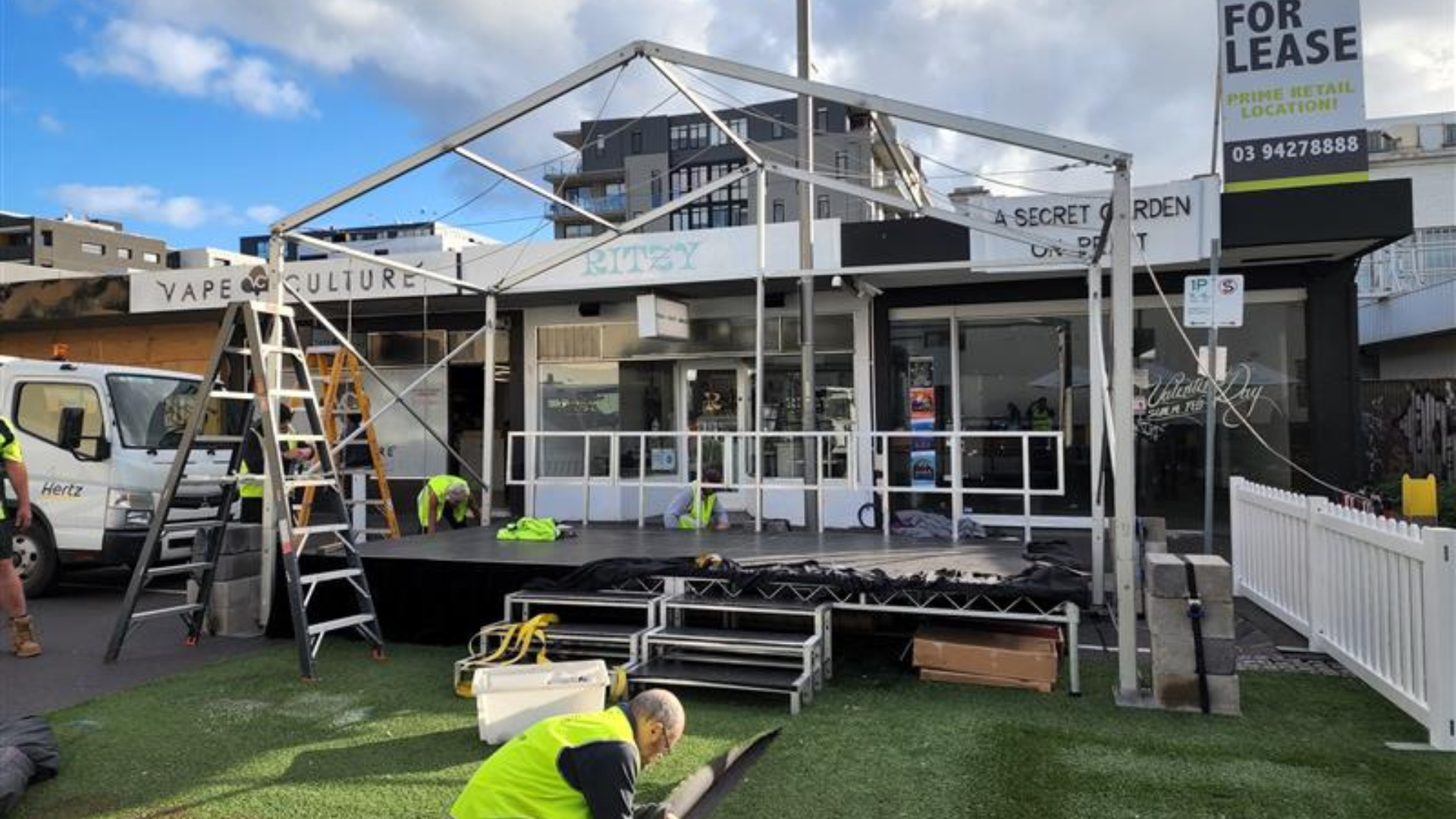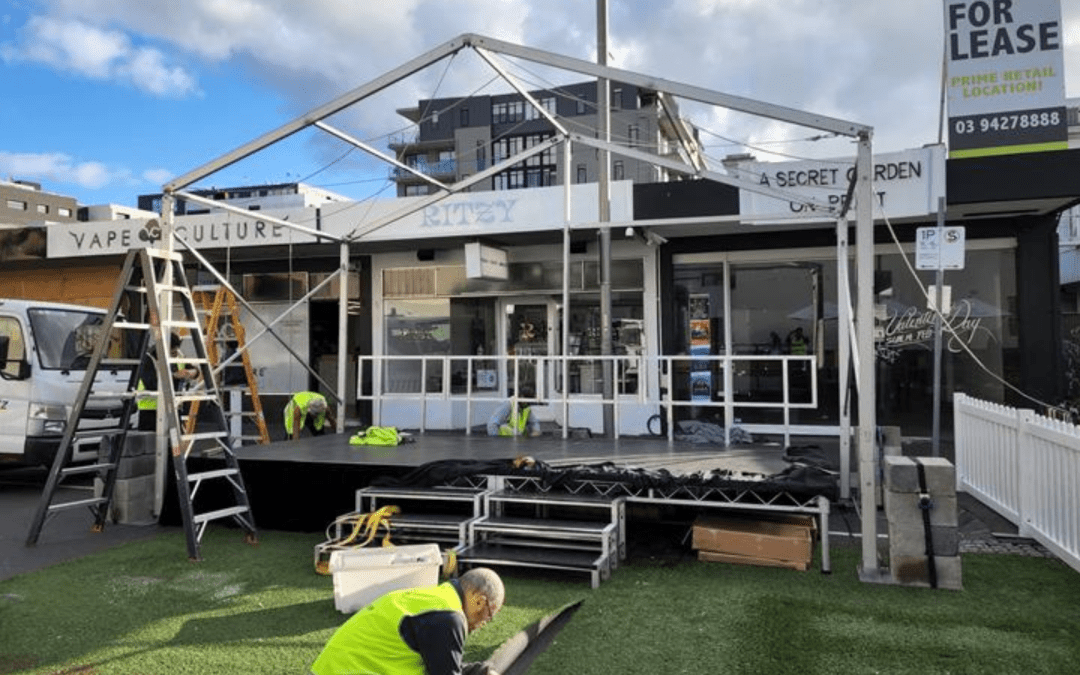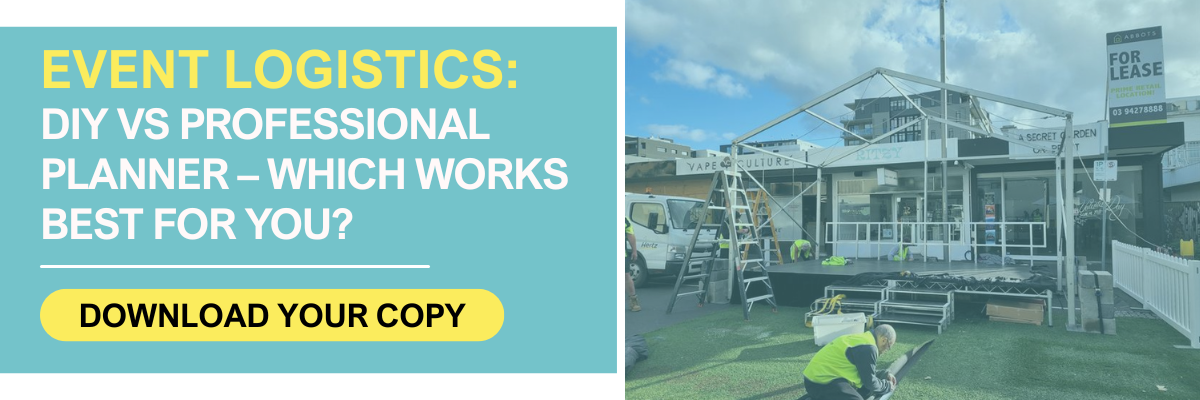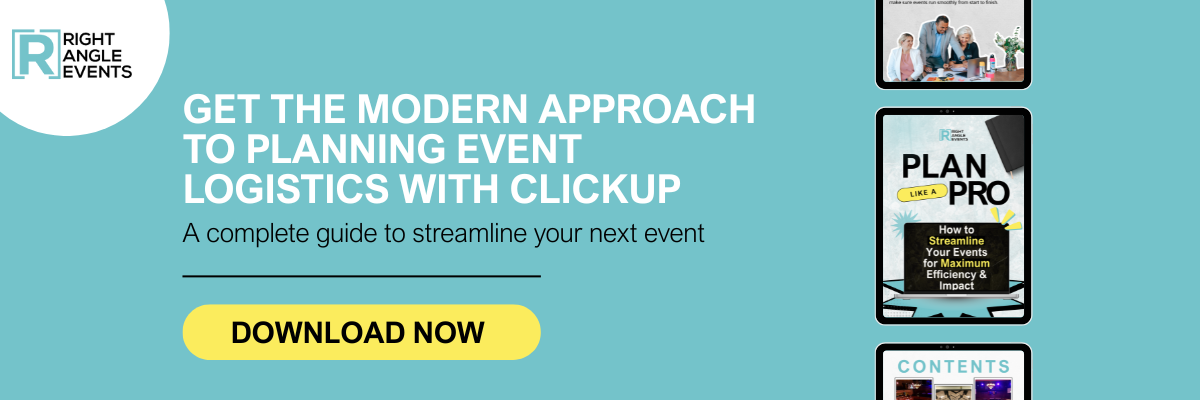Planning an event demands close attention to every logistical detail that keeps your project running smoothly and on schedule. According to a 2025 study by Eventbrite Australia, over 70% of event organisers face unexpected expenses related to logistics, which often threaten budgets and timelines. These costs include venue rental, transportation, equipment hire, catering, and staffing — all crucial factors shaping your event’s success.
Without a clear and thorough budget, these expenses can quickly escalate, putting both your event’s outcome and your professional reputation at risk. By understanding how to budget for event logistics, you can manage resources effectively, anticipate challenges, and maintain control over your event’s financial health. This guide outlines practical steps and insights to help you allocate funds wisely and deliver an event experience that meets your goals without unwanted surprises.

What Does Budgeting for Event Logistics Mean?
Budgeting for event logistics means breaking down every part that makes your event run smoothly and figuring out how much each will cost. This includes everything you need to make the event happen, such as equipment, staff, permits, and services. By putting a price on each item, you can see the full picture and plan your spending wisely. Taking the time to list these details helps you avoid missing important costs that might catch you off guard later.
Effective event logistics budgeting ensures you cover all the necessary areas, including those that might not be obvious at first. It helps you prepare for things like last-minute changes or extra charges that often come up during event planning. By having a clear budget, you can keep your spending on track and focus on creating a great experience for your attendees, sponsors, and everyone involved. This careful planning also means you can make decisions confidently, knowing your event stays financially balanced.
Defining Your Event Scope Is the First Step
Before you start budgeting, it’s important to have a clear picture of your event’s size and purpose. Understanding these details helps you plan more accurately and avoid surprises later. Taking time to think through your event’s specifics also ensures your budget reflects what you truly need. Ask yourself:
- What type of event are you hosting? Is it a conference, networking function, product launch, charity fundraiser, or something else? Each event type comes with different logistical needs.
- How many people will attend? Knowing your expected audience size affects decisions about venue, catering, staffing, and transportation.
- Where will your event take place? Indoor or outdoor venues can have different cost implications, such as permits, equipment needs, and weather plans.
- How long will your event last? Single-day or multi-day events generally require varying levels of resources and staff.
- What is your target audience’s profile? Understanding who your attendees are can influence choices like accessibility, seating arrangements, and catering preferences.
- Will you require special permits or licenses? Certain activities may need official approvals, which come with time and cost considerations.
- What technical needs does your event have? Consider audio-visual equipment, internet access, and power supply requirements.
- Are there any specific health and safety measures you need to include? This could involve security personnel, first aid, or crowd management.
Answering these questions gives you a solid foundation for creating a realistic and effective budget. A clear scope definition helps you focus your resources on what matters most to your event’s success.
Key Event Logistics Components to Budget For
When creating your budget, it’s important to consider all the elements that contribute to your event’s smooth operation. Each part carries its own costs, and understanding these will help you allocate funds appropriately and avoid surprises.
1. Venue Costs and Related Fees
The venue is often the largest expense. Include rental fees plus extras like security deposits, cleaning charges, utilities, and overtime fees if your event runs beyond scheduled hours. Also, consider setup and breakdown time, as venues often charge for these periods.
2. Permits and Licenses
Depending on the location and nature of your event, you might need permits for sound amplification, alcohol service, food handling, or road closures. Regulations vary across Australia’s states and local councils, so research early and budget accordingly.
3. Transportation and Parking
Plan for moving people and equipment efficiently. This could include shuttle services, parking fees, or vehicle hire if you’re coordinating multiple sites. Account for driver costs and any special accessibility requirements.
4. Audio-Visual and Production Equipment
High-quality sound, lighting, and visual displays make a big difference in attendee experience. Budget for rental fees, technicians, setup, operation, and teardown. Don’t forget backdrops, staging, and special effects if part of your program.
5. Furniture, Decor, and Signage
Tables, chairs, linens, and decorative items contribute to your event’s look and feel. Factor in delivery, setup, and pickup costs. Clear signage helps attendees navigate, which is particularly important at larger venues or festivals.
6. Catering and Hospitality
Food and beverage often represent a major chunk of your budget. Include catering staff wages, equipment rentals (like coffee machines or bars), and accommodate special diets. Remember to add potential last-minute orders.
7. Staffing and Security
Beyond your core team, you may need security personnel, medical staff, or extra hands during setup and teardown. Staff costs can quickly add up, so plan carefully based on event size and risk profile.
8. Marketing and Promotion
If you’re responsible for outreach, allocate funds for advertising, social media campaigns, printed materials, and branded giveaways. Good marketing ensures your target audience shows up.
9. Insurance and Contingencies
Protect yourself against cancellations, liability, or unforeseen incidents with appropriate event insurance. Also, set aside a contingency fund (usually 10-20%) for unexpected expenses like equipment failure or last-minute venue changes.
By breaking down your budget into these key components, you can create a clear financial plan that supports all aspects of your event. This detailed approach helps you manage your resources effectively and reduces the risk of costly surprises.
Research Suppliers and Secure Competitive Quotes
To build an accurate budget, you need real numbers. Contact multiple suppliers for quotes on every service and product you need. This helps you:
- Compare prices to find options that fit your financial plan.
- Assess quality through references and reviews lowest cost isn’t always best.
- Understand payment terms and deadlines to manage cash flow.
Be transparent about your budget constraints when negotiating some suppliers may offer packages or discounts tailored to your needs.
Building and Managing a Flexible Event Logistics Budget
Creating your event budget is more than listing costs. It’s about managing your resources in a way that keeps your event on track while adapting to changes along the way. Start by itemising every expense with clear details so you have full visibility over where your money is going. This helps you track spending carefully and avoid surprises.
Next, set aside a contingency fund typically between 10% and 20% of your total budget to cover unexpected costs like equipment issues or last-minute changes. Treat this as a buffer, not extra spending money, and use it wisely when unforeseen expenses arise.
It’s also important to establish a payment schedule. Regularly update your budget as quotes come in and plans evolve, so your financial picture stays accurate and actionable.
As you plan, prioritise spending on areas that directly affect your attendees’ experience. Allocate funds to:
- Safety and Security: Ensure adequate personnel and emergency preparedness are in place.
- Accessibility and Comfort: Make your venue welcoming and accessible to all guests.
- Technical Reliability: Invest in quality audio, lighting, and visual equipment to maintain professionalism.
To keep your budget on track, use simple tools like spreadsheets or event management software like ClickUp to monitor expenses in real time. This allows you to spot overspending early, make necessary adjustments, and keep control over your financial commitments. Regular budget reviews with your team also help maintain alignment and awareness.
After your event, take time to review your budget performance. Compare estimated costs with actual spending to identify where you over- or under-budgeted. Gather feedback about logistics and attendee experience to understand what worked and what could improve. Use these insights to refine your budgeting approach for future events, making your planning more precise and your logistics smoother over time.
Plan Your Next Event Logistics with Confidence
Budgeting for event logistics is a key step that sets you up for success. Knowing your event’s scope, researching suppliers, and monitoring costs carefully allow you to deliver an experience that meets expectations without overspending.
Right Angle Events specialises in practical event logistics planning tailored for Australian clients like you. We understand the local landscape and the needs of event professionals balancing quality with budget constraints. Ready to get started on a precise, stress-free event plan? Reach out today to explore how we can support your next event.


